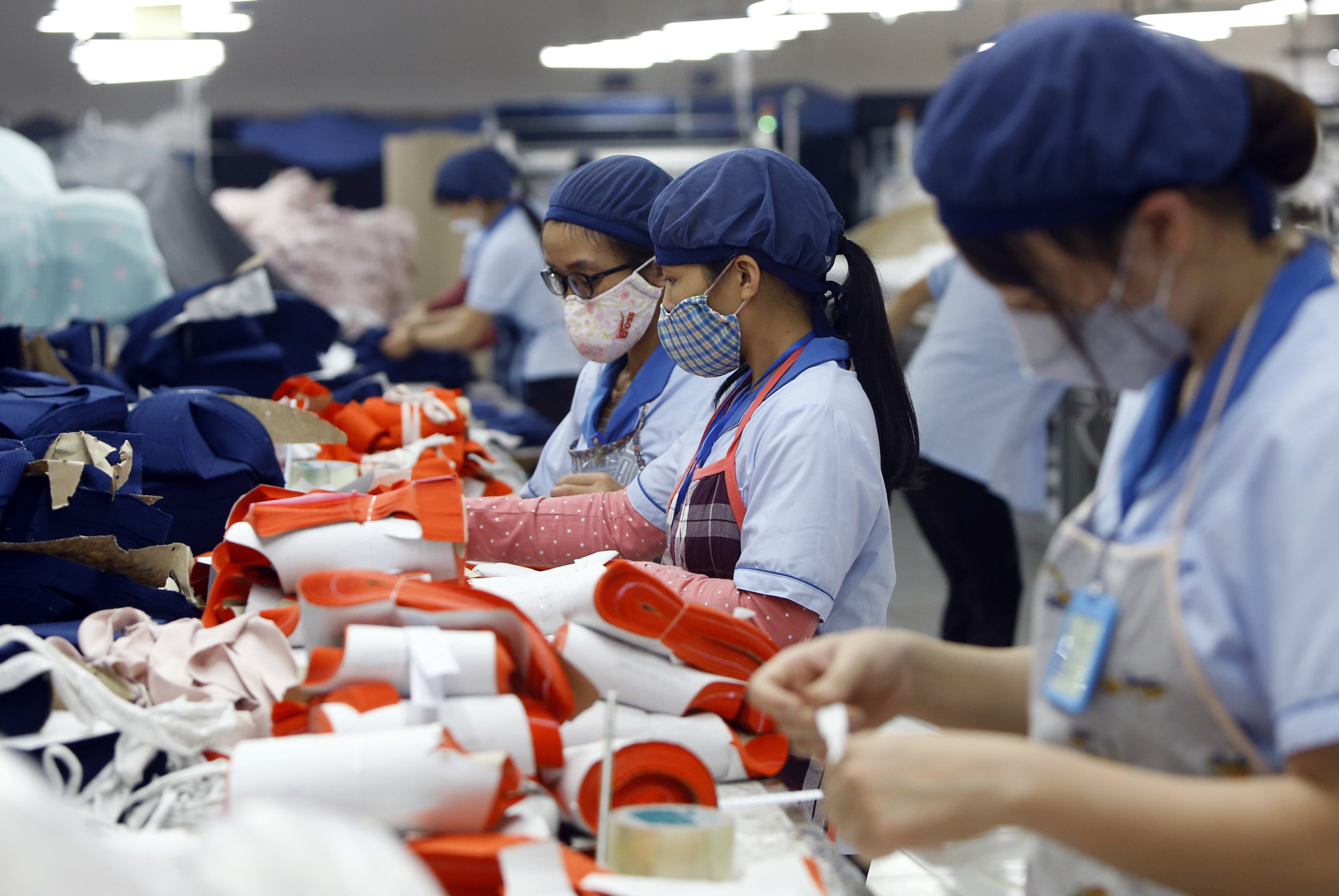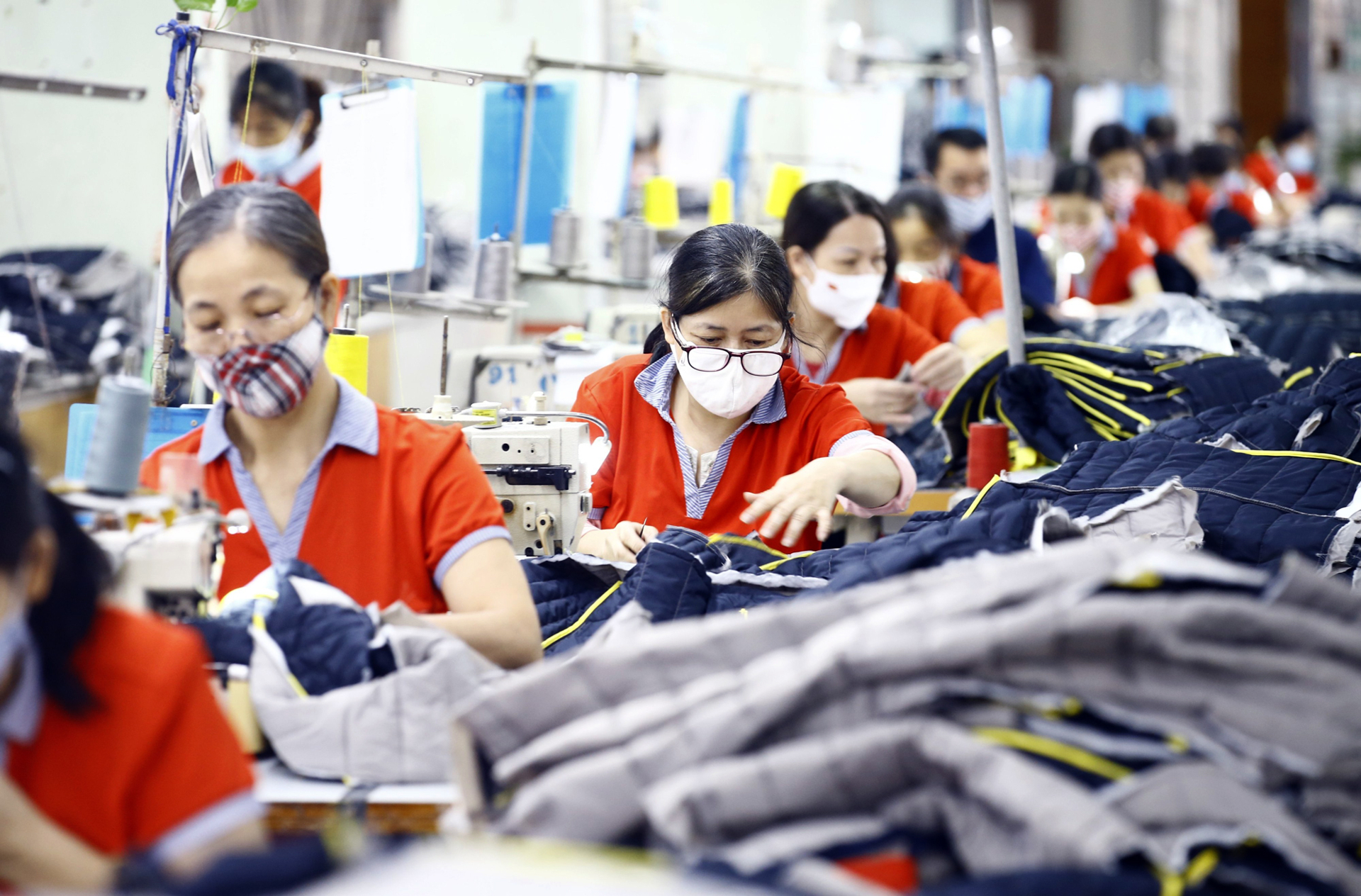Leader Talk
Garment factories embracing respectful workplaces
Embracing respectful workplaces could very well be the key to unlocking a more prosperous future for Vietnam's garment industry.

The prevalence of gender-based violence (GBV) both locally and internationally is a topic fueling many conversations. Central to these discussions are the actions to address and prevent it in domestic and workplace settings. Here in Vietnam firms in the garment industry have taken note and are taking action to address GBV.
GBV refers to any harmful act directed at an individual based on their gender, encompassing physical, sexual, psychological, and economic abuse. Growing evidence from Vietnam, Myanmar, Sri Lanka and other countries in Asia has demonstrated that the economic impacts of workplace violence are real and cannot be ignored.
According to a 2023 survey of garment factory workers by Better Work Vietnam, 60 per cent of the respondents recognized the vulnerability of female workers to sexual harassment in the workplace. Verbal forms of sexual harassment and unwanted touching are prevalent, indicating a widespread lack of understanding about sexual harassment, and more broadly, gender-based violence.
Workplace violence affects employee well-being and can lead to reduced productivity, increased absenteeism and employee turnover, which translates into millions of dollars lost per year for companies. A 2019 study in Vietnam estimated that violence against women is costing the country 1.8 per cent of GDP per year.
Different industries experience different challenges. And in Vietnam’s female dominated industries, such as garment and footwear manufacturing, with nearly 2.5 million people employed across more than 6,000 factories, the impacts of harassment are often widespread.
Studies, including those by the United Nations Population Fund (UNFPA), CARE International, and IFC’s own research showed that on average, one in three workers in Vietnam reported experiencing at least one form of violence and harassment in the previous year, including physical harassment such as unwanted kissing, touching, or hitting.
However, GBV in the workplace is rarely reported in Vietnam. This is due to social taboos, low rates of awareness of workers' rights, and lack of trust in the grievance mechanisms available. These experiences are directly impacting company productivity and growth. To understand the potential economic impact in Viet Nam, we can look to research from neighboring countries such as Cambodia where GBV in the workplace is estimated to cost the sector $89 million per year.

The garment industry in Vietnam has taken steps to address GBV on the factory floor, guided by the 2019 Labor Code and related compliance pathways for preventing and addressing sexual harassment in the workplace. Following the requirements, many have already taken steps to implement the new standards .
This is a crucial initial step, but to address the risk of GBV in workplaces effectively, factories must move beyond simply fulfilling their compliance requirements and recognize the positive business benefits of creating more respectful workplaces.
It is therefore encouraging to witness factories in Vietnam seizing the opportunity presented by respectful workplace initiatives to improve workplace culture and build greater workforce stability – an attractive proposition to global buyers.
With support from IFC and the Australian government, Vietnamese suppliers to the global brand Primark have aimed to address GBV and harassment by increasing company awareness of the issue and implementing responsive measures. Tailored and localized training modules were conducted, and a community of practice was developed to support factory employees responsible for addressing violence and harassment.
This initiative increased employee awareness of what constitutes workplace harassment and how to seek help by ensuring effective communications through various levels of factory hierarchy.
Additionally, mentorship and guidance were provided to enable companies to track progress over time and ensure continued improvement of implemented practices.
A key factor in the program's impact is the establishment of a trained ecosystem of contact-teams within each factory. These teams were established to offer survivor-centered support to all employees, ensuring the program's ongoing success and sustainability.

After just two years of these systematic interventions, results from the participating Vietnamese suppliers show improved well-being, with increased employee awareness of appropriate workplace behaviors. Disrespectful behaviors were reported to have reduced by more than half, and half as many workers reported thinking about leaving their job than had done at the outset of the program. Overall improvements in worker attendance and retention have also been noted.
This practical centering of the program on understanding the effect of GBV on workplace experiences and business performance helped participating Vietnamese factories to meet their compliance obligations, while also creating a stronger and more resilient workforce, increasing their appeal to global brands. By taking proactive measures, these local businesses are demonstrating their commitment to their worker’s wellbeing, positioning themselves as “Employers of Choice” and boosting employee loyalty.
Supporting and championing safe and respectful workplaces in Vietnam must be considered a core strategic business decision for companies.
This commitment to respectful workplaces where everyone can thrive should be reflected in polices that better equip businesses to address the issue of GBV, as well as in elevating staff knowledge on the topic through workshops and training to respond to disclosures of violence. Alongside these efforts, businesses can identify community service providers in local communities that can assist employees facing violence.
(*) Thomas Jacobs is the Country Manager for Vietnam, Cambodia, and Lao PDR at the International Finance Corporation (IFC), a member of the World Bank Group.
3M Vietnam's country leader embraces for gender equity
Vietnam turns semiconductor vision into action
The global semiconductor industry is being reshaped by geopolitical tensions, shifting supply chains, and the surge of digital technologies.
Cutting red tape in APA approvals to speed up tax negotiations
The change in APA approval authority is expected to shorten processing time and enhance business proactiveness in international tax negotiations.
Enterprise cybersecurity is under threat from the inside
As hybrid cloud systems grow more complex, Vietnamese enterprises are struggling to detect cybersecurity threats moving laterally within their own networks.
Breakthrough for the international financial center ambition
The submission of the draft resolution on Vietnam’s international financial center to the National Assembly heralds a new developmental era for the country.
How leadership philosophy redefines hospitality in Nha Trang
More than just running a 5-star resort, Kristian Petersen is redefining the art of hospitality with a humane and sustainable leadership philosophy.
When organic becomes an inspiring wellbeing lifestyle
For Tyna Huynh, co-founder of Drinkizz, organic is not just a food choice but a way of life that fosters a deep connection between people, nature and community.











































